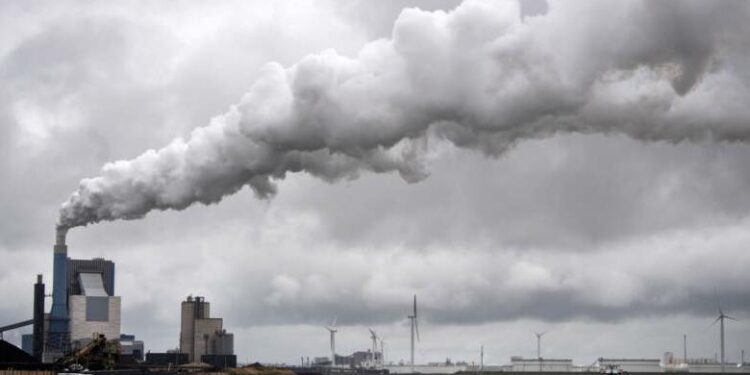How Europe Can Make Carbon Pricing Policies Less Regressive
Poor households in Germany and France pay up to $2 more per ton of emitted carbon dioxide than their higher-income compatriots. That is because products and services that wealthier people are likelier to consume—such as imported goods and travel outside the European Union—are exempt from carbon pricing. In other words, carbon pricing is regressive, meaning the poor pay proportionally more than the rich, as a share of their income.
New IMF research shows that correcting that distortion, in other words, equalizing carbon prices across countries, would spread the economic burden of emission reductions more evenly across households and alleviate the weight on poorer Europeans.
It is not only a socially fair objective. This would also be economically more efficient. It would ensure that cheaper emissions reduction options are implemented first, which would lower the cost of achieving European countries’ emission targets. And it would also distribute the cost of emissions reduction across firms, sectors, and countries.
The average highest-income household in Europe paid about $10.75 per ton of carbon dioxide in 2020. As the Chart of the Week shows, the lowest-income households pay on average $1.25 more. This gap rises to $1.75 and $2 in countries such as Germany and France, and $5 in Bulgaria.
Capital flows to emerging market and developing economies went through several boom-bust cycles in recent decades, often partly driven by external developments such as monetary policy decisions in major advanced economies. During the recent global monetary tightening, inflows to many emerging market and developing countries proved relatively resilient, benefitting from robust policy frameworks and healthy international reserves. However, some of the most vulnerable countries were disproportionately affected by higher external borrowing costs, as illustrated by a sharp slowdown in Eurobond issuance.
Eurobonds are international debt instruments issued by countries in a currency different from their own, typically the US dollar or the euro. Eurobonds are primarily used by higher risk emerging market and developing countries because they avoid the limitations of their often less-developed domestic capital markets, allowing borrowers to access foreign capital and diversify their funding sources. But unlike local currency bonds, Eurobonds involve exchange rate risk for the borrower, and their interest rates are particularly sensitive to monetary policy settings for the currency of issuance.
The Chart of the Week highlights the sharp slowdown of Eurobond net issuance by emerging market and developing economies, which fell to an annual $40 billion in 2022-23, down 70 percent relative to the prior two years. During this period, 26 of 75 countries saw net Eurobond outflows, totaling $58 billion (including countries like Bolivia and Mongolia). These outflows resulted from maturing Eurobonds exceeding new issuance, rather than outright sales by global investors.
 |
Making carbon prices more uniform within countries and, better yet, across countries, would help equalizing the burden of cutting greenhouse gas emissions within EU countries.
In fact, a global price would be most effective in this regard, as it would raise carbon pricing embedded in EU households’ imports. Because such a scheme would also imply large differences in burdens across countries, one possible alternative is the IMF’s carbon price floor proposal, which could promote economic efficiency. The ongoing extension of carbon pricing to road transport and heating fuels should also make carbon pricing less regressive.
EU economies will likely remain more open (on average) and apply higher carbon prices than their trade partners. So, the revenues from pricing domestic carbon emissions will continue to exceed the carbon pricing costs embodied in European household consumption bundles. This should allow the burden of carbon pricing on lower-income households to be eased.








